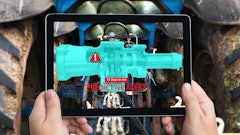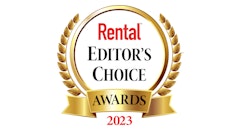
As many rental companies know and as part 1 of this article detailed, rental software provides several benefits to their operations.
Andy Clark, sales director, Americas, at Point of Rental Software; Joe Lewis, president of Fame Intel, parent company of Fame Rental; and Mary Crosslin, co-president and COO of Alert Rental; lay out how rental companies can go about implementing this type of software.
While part 1 of this article discussed the benefits of rental software and how it can make rental houses more efficient, part 2 of the article will cover how rental companies can gain buy-in from employees, the right time to implement a new software and key data point rental companies should be measuring with their software.
Rental: How can rental companies gain buy-in from employees when it comes to using the software?
Clark: Rental companies should look for a software partner that provides extensive knowledge bases, ongoing supplemental training and consultative services to help their employees best leverage the software.
Crosslin: Share with each person or team how will they benefit (from the software) in their role. As the owner or manager, you understand the reasons you need to switch rental software, but your entire company is impacted by the decision. Have key staff in every training session and don’t mistake ‘"no objections or no questions" as a positive. Often, the people in a training class that are the most vocal are the most engaged. When looking for new software, ask your staff to tell you how they use it in their day-to-day role and what they wish it could do better. Ask them to share with the project manager or instructor the things that they like about their current software, so those individuals can show them how to do those same things in the new ERP.
Lewis: Strong management leadership is No. 1. The second trick is to involve the skeptics at the beginning. You're always going to have skeptics, but if they have a voice at the very beginning, allow them to be part of the assessment of the product and have them lead their teams from start to finish, everybody else comes along.
Rental: How can a rental company know the right time to onboard a new software or even upgrade the one they have?
Clark: Rental companies choose to move or upgrade their rental management systems based on their current system's (or lack thereof) ability to help solve their most immediate problems or business objectives. This could include growth plans and scalability, staying cutting edge to meet evolving technological needs and industry trends and even pressure from competitors who are out-pacing their ability to offer easier ways for their customers to do business, oftentimes resulting in a great amount of lost business or increased overhead before making the switch. Understanding the real costs of inaction is key to making the decision to move forward with a new partner. The most successful software transitions are when the decision makers are able to anticipate how their current processes and software will cost them in the future and make changes prior to major impacts on their business.
Crosslin: First, stay up to date on your software. Your software company probably puts out a new revision periodically, and it will not only contain new features but also critical bug fixes. If you want new functionality, don’t assume that your software doesn’t offer it. Ask what’s new and ideally, attend their users’ group conference. If you decide to switch to a new rental software, do it midmonth. Doing it midmonth won’t pile onto the accounting staff’s tasks. Let them close the month, send one extra set of statements, and then go live midmonth. They will have a role in the go-live, and this makes things easier for everyone. Also, if you want your entire fiscal year on the new software, go live slightly ahead of the start of your fiscal year.
Lewis: Do an inventory of a number of critical systems that are being used. Find out how much operation or decision-making data your managers have on spreadsheets. Also, figure out how your metrics are holding up? If companies know they're going to exit or want to position themselves for that in the future, putting in a new modern software and streamlining their operations will give them that investment will pay them rich dividends.
Rental: What are a few of the key data points rental companies should be monitoring with their software?
Clark: There are many data points a rental company should be keeping an eye on, including item utilization, item availability and turnaround times (including missed rentals due to lack of availability), maintenance tracking and history, asset depreciation, billing, financial performance, seasonal trends and return on investment. Having visibility into these key metrics gives rental companies the ability to make pivotal, real-time decisions based on data analytics, positioning their business to maximize revenue and employee/customer satisfaction.
Crosslin: Here are a few: utilization; ROI on assets; calculating profitability on jobs; margins on sales items; true cost versus rate for delivery; trends by category of equipment, type of customer and value of tickets by zip code; how new clients arrive at your door and how they are placing orders; discounts by salesperson; how long repairs are taking and actual revenue versus projected by month and branch.





























